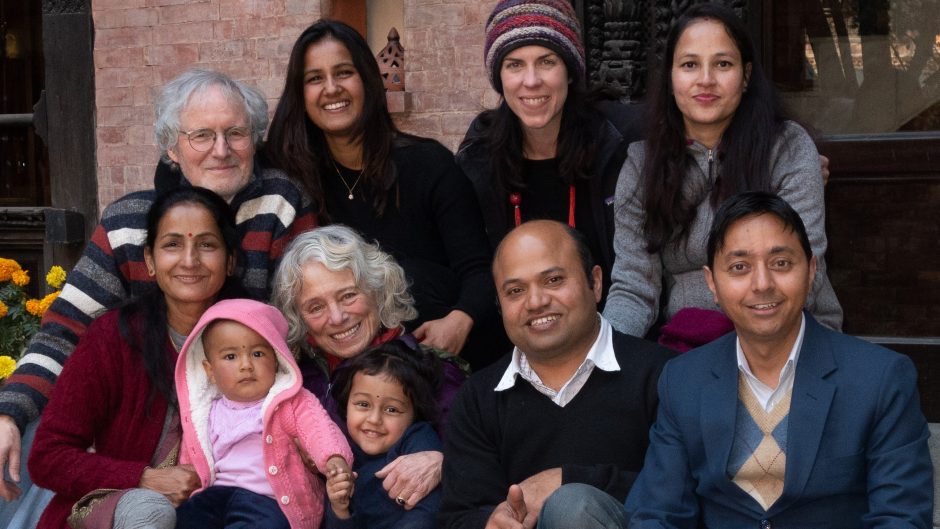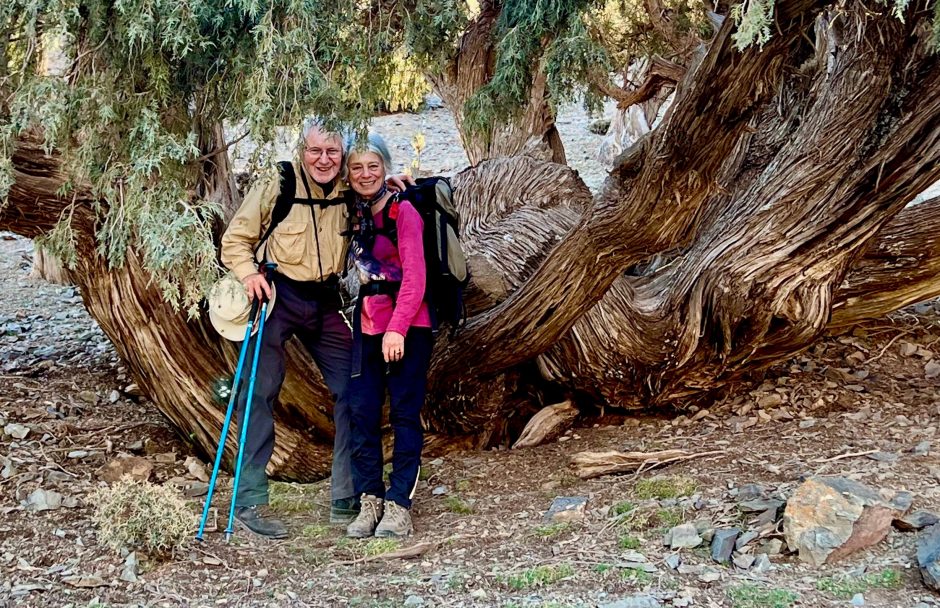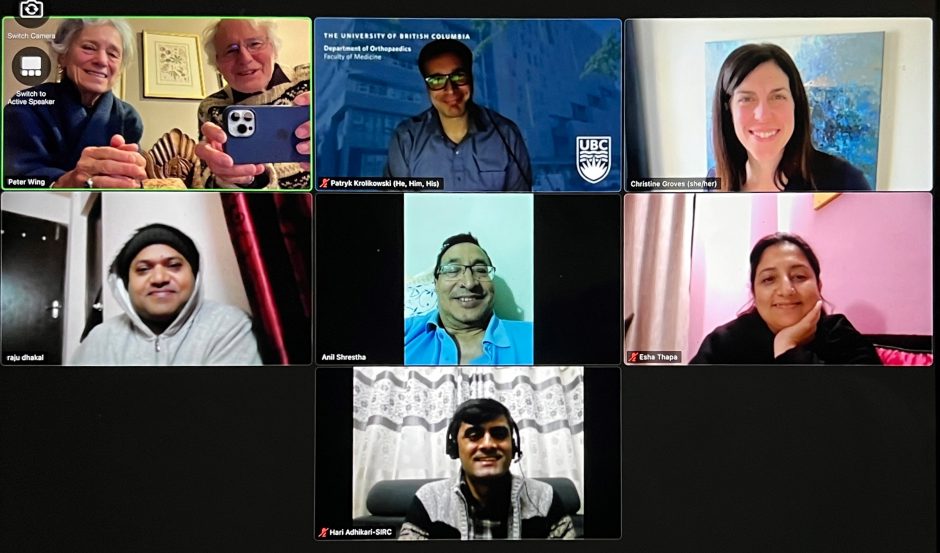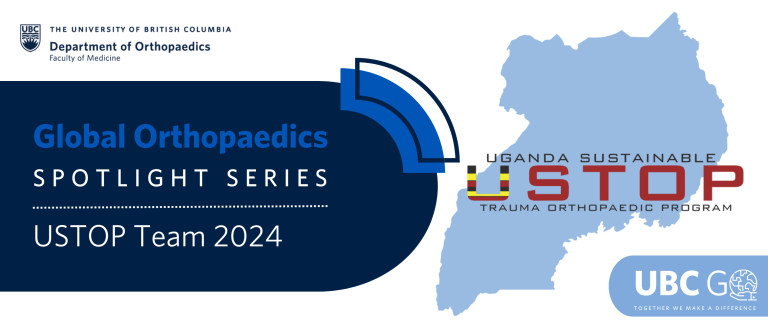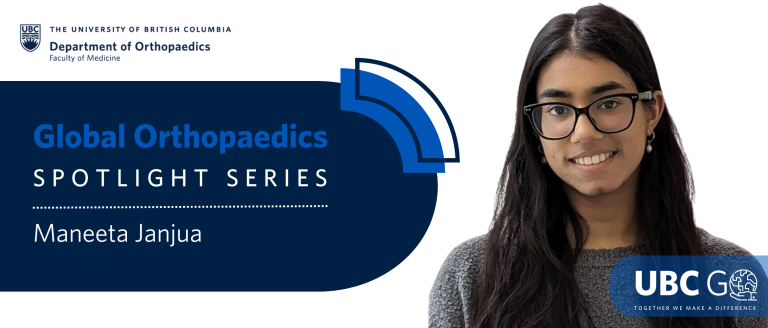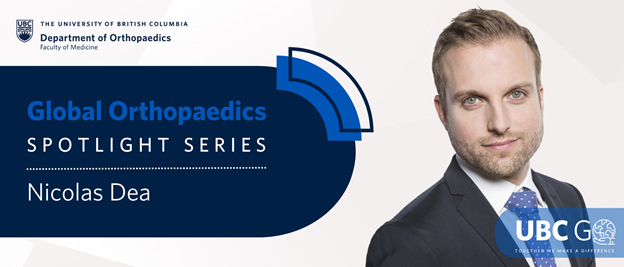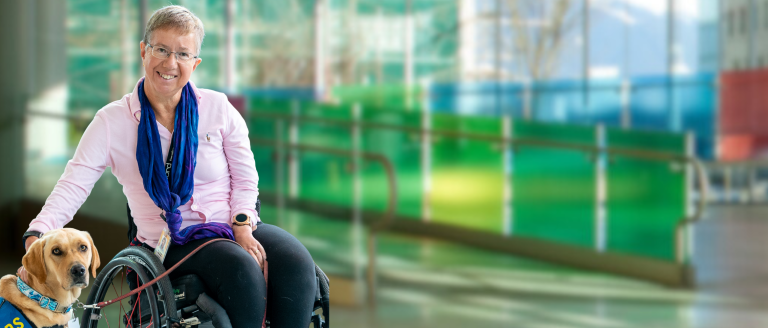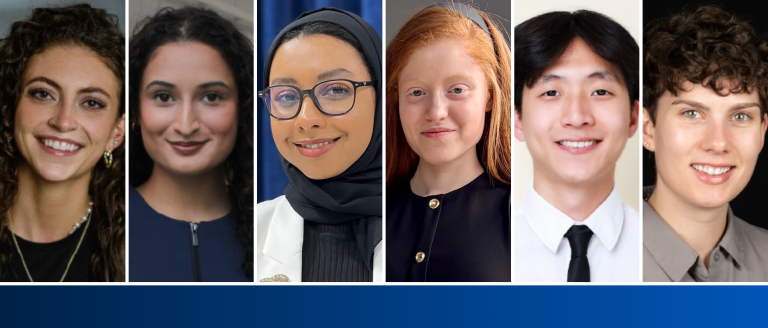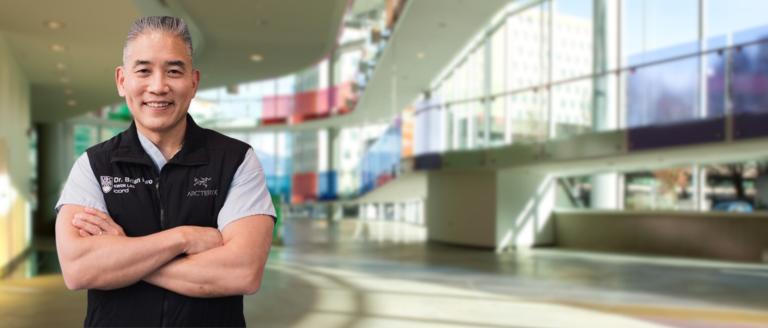By Tarini Boparai & Maneeta Janjua
Our UBC Global Orthopaedics (UBC GO) Spotlight series features in-depth conversations with a UBC Department of Orthopaedics member about their involvement in global orthopaedic initiatives.
In our second UBC GO spotlight, we learn about two retired Vancouver physicians, Peter Wing and Claire Weeks, and their work with SpiNepal. Dr. Wing, M.D., FRCSC, is a UBC Clinical Professor Emeritus of Orthopaedics and former spine surgeon. Dr. Weeks is a UBC Clinical Assistant Professor Emerita, physiatrist and spinal cord rehab specialist.

CLAIRE WEEKS & PETER WING
Project:
Spinal Cord Injury Nepal (SpiNepal)
What inspired your interest in global health/surgery/orthopaedics?
PW: As a teenager, Albert Schweitzer’s biography led me to medical school, an internship in the US, orthopedic training in Vancouver and the fledgling spine group at Shaughnessy. Claire and I were drawn to the International Spinal Cord Society (ISCoS) – and learned how interdisciplinary care can markedly reduce mortality, lessen morbidity and improve quality of life after SCI.
CW: ISCoS introduced us to many who in other parts of the world were doing so much with so little. Peter and I (then a physiatrist at GF Strong) met Swedish paraplegist Professor Claes Hultling, unrestrained by his cervical SCI (Vimeo documentary “Africa with a Broken Neck”). Confined to a wheelchair, he became the chief of Spinalis, Stockholm’s SCI Unit. Claes inspired all; and his dynamic Spinalis team set up specialized SCI units in Botswana, Namibia and later Zambia.
What did you do?
In 2008, Dr. Peter O’Brien invited us to join the Uganda Sustainable Trauma Orthopaedic Program (USTOP) mission to Uganda to assist with training the spinal injury team. Also, in 2008 we were asked by Steven Muldoon, an ISCoS colleague and SCI nurse with experience in several Asian countries, to train Dr. Raju Dhakal, a young physician recently appointed to a spinal cord care team in Nepal. Publisher and journalist, Kanak Mani Dixit, had sustained a spinal injury while trekking in the Himalayas. Flown to New York for rehab, he decided to develop a Spine Injury Rehab Center (SIRC) in Kathmandu because Nepalis had no facility to treat injuries like his. Starting in borrowed space with funding from two major foundations staff was found, a rehab program was established, land acquired, and a new facility built. Raju Dhakal, who had had polio as a child, was hired as ‘medical-in-charge’ but needed training as a rehabilitation specialist to function in this role. We agreed to sponsor him throughout a five-year rehabilitation medicine residency in Bangladesh and accredited in Nepal.
We met another keen young doctor on that first visit – Prakash – a house officer (hospitalist) in the neurosurgical unit of a not-for-profit hospital in Kathmandu. While desperately keen, he could not afford residency. We agreed to sponsor him also.
Where did you find the funding?
All our trips were self-funded. To defray Dr. Raju’s and Prakash’s educational and living expenses we organized concerts, sold jewelry and textiles we brought back from our early visits, and held fundraisers at home with friends and colleagues who became generous donors. Orthopedic department staffer (now Dr.) Nathan O’Hara set up a charitable donation account (“SpiNepal”) with the UBC Development Office. We raised enough money for Raju’s otherwise unfunded training in PM&R, for Prakash’s neuro- and spine surgery training, and for Jas, another young physician, to complete his residency and join Raju at the SIRC. We are very proud of the achievements of these three excellent doctors.
One thing we’re probing and looking into is sustainability. Do you think your projects were able to achieve sustainability?
We could not afford to bring people to Canada for training, and also felt that it was important to train in their region if not their own country. Prakash took the gold medal in his final neurosurgical exams, and we later sponsored his spine fellowship year in London, Ontario, wiping out most of our reserve!
It takes time to build a sustainable program and in our 14th year, most of our initial goals have been met. Great support from Canadian friends and colleagues made SpiNepal’s work possible; the supportive board at SIRC has encouraged us, as has support from dedicated physicians who mentor and teach our trainees. Foremost is Dr. Christine Groves, a physiatrist from Indiana who has mentored Raju for the last 9 years. Our trainees are becoming expert medical managers and teachers. Last year the International Development and Collaboration (IDAC) program of Canada’s Royal College of Physicians and Surgeons awarded us a three-year grant to support a Nepali Rehabilitation Medicine training program starting with two trainee fellows and hopefully evolving into a residency.
Looking back, what do you think were the key insights and main barriers that you faced?
A continued relationship with our Nepalese friends was needed to achieve longlasting changes in a country with no rehabilitation medicine programs. Few of us can take on this kind of project in the early years of our professional life (especially if children come along) but many of our younger colleagues should consider supporting our colleagues around the world in mid-career. The foundation for our project was set up over the years before we retired; SpiNepal has been a wonderful retirement project.
Nepal is close to 12 time zones away from us. Our vacations centered around the trips to Nepal and conferences to reduce our carbon footprint. Between visits and especially through the pandemic we have found times (before our breakfast and close to bedtime in Nepal) to meet through Skype, Viber, WhatsApp, Facetime, Zoom and Teams. Technology has improved a lot from the often-truncated conversations of even ten years ago.
We had to acquire fundraising skills, set up a mechanism for safe and transparent transfer of funds and be a constant presence supporting our grantees through their years of training. Funding has always taken a lot of effort; generous and undemanding donors made it possible. Earthquakes and pandemics were stressful and expensive. Canada’s unpredictable visa service hinders younger and less resourced trainees coming to this country for further education, but collaboration between our UBC divisions usefully concentrates expertise.
Are you working on any projects right now? What are your future plans/implications?
Being close to 80 years old we must ensure that there are people to continue our work; succession planning is always in mind. Raju (with mentor Dr. Christine Groves) will be the leads for the recent grant from the RCPS(C). Their developing international stature will succeed in getting others to teach and support Nepal.
We plan to go return to Kathmandu. While there is little that we can now teach, we want to see ‘our’ families with children now five years older than when we last saw them, others we have yet to meet. Physiatrists and others from Vancouver and across Canada and from other countries have volunteered to teach. Prakash had a wonderful set of teachers in London with Dr. Supriya Singh’s leadership (Prakash’s supervisor there and chair of the COA Global Surgery group). In particular, she has been working closely with the SIGN International group in Washington State to realize the SIGN Spine program which we hope will in time be available in Nepal.
Learn more:
